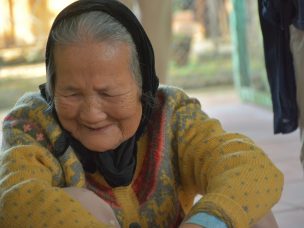Contributions
Making Progress in Eliminating Asthma Disparities
Asthma continues to be a pervasive epidemic in the United States that disproportionately affects Black and Brown individuals in terms of incidence as well as morbidity and mortality. These disparities may, in part, be due to ancestry. Genetic markers, for example, have shown associations between African ancestry and lower lung function. However, it is also well...
How Medicare Status Affects Wet AMD Treatment
Researchers are seeking to understand the variances in the use of bevacizumab and ranibizumab for the treatment of wet age-related macular degeneration (AMD) among Medicare beneficiaries. This retrospective cohort study was performed using a sample from a three-year span of 100% Medicare claims data. The data were analyzed to determine whether ranibizumab or bevacizumab was administered...
Age-Related Macular Degeneration Study With Black Patients
In this study, the researchers sought to determine the features of age-related macular degeneration (AMD) in the Black Barbadian population. A random group of Barbados-born citizens 40 to 84 years of age was selected. A total of 3,444 participants completed examinations at the study site and had gradable macular photographs taken of both eyes. Data were...
Geographic and Socioeconomic Barriers Hinder Wet AMD Treatment
Healthcare professionals have cited that delayed treatment and non-continuation of treatment are concerning issues affecting wet age-related macular degeneration (AMD). Multiple factors can present barriers for patients to receive the proper diagnosis and treatment. It is imperative that individuals with AMD are diagnosed in the early stages of the disease and follow a professionally advised...
Prevalence of Wet AMD Across Multiple Ethnic Groups
Research regarding the prevalence of age-related macular degeneration (AMD) across multiple racial/ethnic groups has been performed to study risk factors for AMD. Data from this study were taken from the second examination of the Multi-Ethnic Study of Atherosclerosis (MESA). The data were analyzed to determine the prevalence of wet AMD across several racial/ethnic groups. Participants of...
Sickle Cell Disease Clinical Trial Funding, Recruitment, and Enrollment
In this MD Newsline exclusive interview with hematologist/oncologist Dr. Cheryl Mensah, we discuss how to increase the funding, recruitment, and enrollment of sickle cell disease clinical trials. MD Newsline: How do you think we can increase the funding, recruitment, and enrollment of sickle cell disease clinical trials? Dr. Cheryl Mensah: “In order to improve funding for...
Dr. Cheryl Mensah: Providing Culturally Sensitive Care
In this MD Newsline exclusive interview with hematologist/oncologist Dr. Cheryl Mensah, we discuss how to provide culturally sensitive care and overcome language barriers. MD Newsline: How have you been able to implement culturally sensitive care in your practice? Dr. Cheryl Mensah: “So in my practice, it’s a little bit easier [for me] to be culturally...
Dr. Cheryl Mensah: Sickle Cell Disease and COVID-19
In this MD Newsline exclusive interview with hematologist/oncologist Dr. Cheryl Mensah, we discuss sickle cell disease challenges and disparities in the wake of the COVID-19 pandemic. MD Newsline: What are the biggest challenges that hematologists are tasked with in the wake of COVID-19? Dr. Cheryl Mensah: “So the biggest challenge for hematologists during COVID-19 was the...
Diagnostic and Treatment Disparities in Sickle Cell Disease
In this MD Newsline exclusive interview with hematologist/oncologist Dr. Cheryl Mensah, we discuss diagnostic and treatment disparities in sickle cell disease and the role of implicit bias. We also discuss how hematologists can help rectify sickle cell disease disparities. MD Newsline: What disparities in sickle cell disease diagnosis and treatment have you observed in your clinical...





